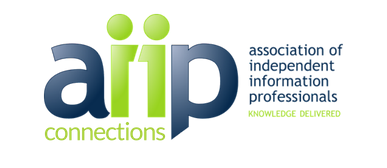Moving from Freelancer to Information Consultant

by Mary Ellen Bates, Bates Information Service
One of the hardest shifts that many new independent information professionals face is changing their perspective of where their value lies and how their market sees the world. When we are surrounded by examples of the low-pay gig economy – Uber and Lyft, Fiverr and UpWork, DoorDash, and GrubHub – it’s easy to fall into the trap of thinking that the only way we can compete is to be cheap and fast. If, instead, we see ourselves as business owners, it is much easier to identify and leverage that unique something that each of us brings to our clients.
Every year or two, I pause to make sure I’m not slipping into the rut of seeing myself as freelancer and undervaluing what I am bringing to the market. Some of the questions I ask myself are:
- Do my clients see me as filling a request or as working collaboratively to address a need? Freelancers simply take a client’s description and scope of a project as is. Information consultants approach each new engagement as a joint project with the client to accomplish a goal, and they negotiate all aspects of the project.
- Am I chasing or attracting clients? Freelancers focus on one-way marketing – email blasts, social media deluge, paid search advertising and so on. Information consultants market themselves by building their reputation and word-of-mouth network over time – by serving in volunteer capacities in their clients’ associations, by speaking and writing on topics of value to their clients, by engaging with their clients at local and national events.
- Am I sharing what I know or hoarding my insights for paying clients only? Information consultants know that clients value the fresh insights they bring to each project, and they know that sharing their perspectives and knowledge publicly does not diminish their value to clients.
- Am I pricing my projects by the hour or by the project? Hourly pricing penalizes cost-effective work and deep familiarity with available resources, and emphasizes activity rather than outcome. Project-based pricing puts the focus on the value delivered to the client, not the work involved with providing that value. If I do have to charge by the hour, I make sure that hourly rate truly reflects the value I bring to the project.
- Are my deliverables original content or others’ thoughts? While I may include backup material or source documents that support my analysis, I know that the value lies on my sense-making of the information, not simply the delivery of what I found. Most information consultants find that the more customized and distilled the deliverable, the more clients value the results.
- Am I talking about what I do or about why I do it? Freelancers describe themselves in terms of their activities – engineering research, taxonomy development, or social media marketing, for example. Information consultants focus on their clients’ outcomes – a new market identified, a business risk identified, or new clients identified through a marketing campaign.
- And finally, am I getting paid enough to have free time? Freelancers often find themselves reducing their regular rate in order to land a job… any job. Information consultants focus on attracting profitable clients that enable them to take time off to recharge.
While thinking like an information consultant moves us outside our comfort zone, it also enables us to tailor our services to the most important information concerns of our clients.
Mary Ellen Bates has been an infopreneur since 1991, providing business analysis for strategic decision-makers and consulting services to the information industry. Her passion projects are beekeeping and coaching new and long-time infopreneurs. See more at BatesInfo.com.





